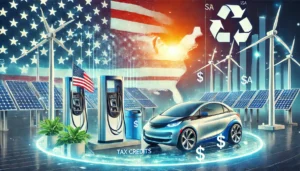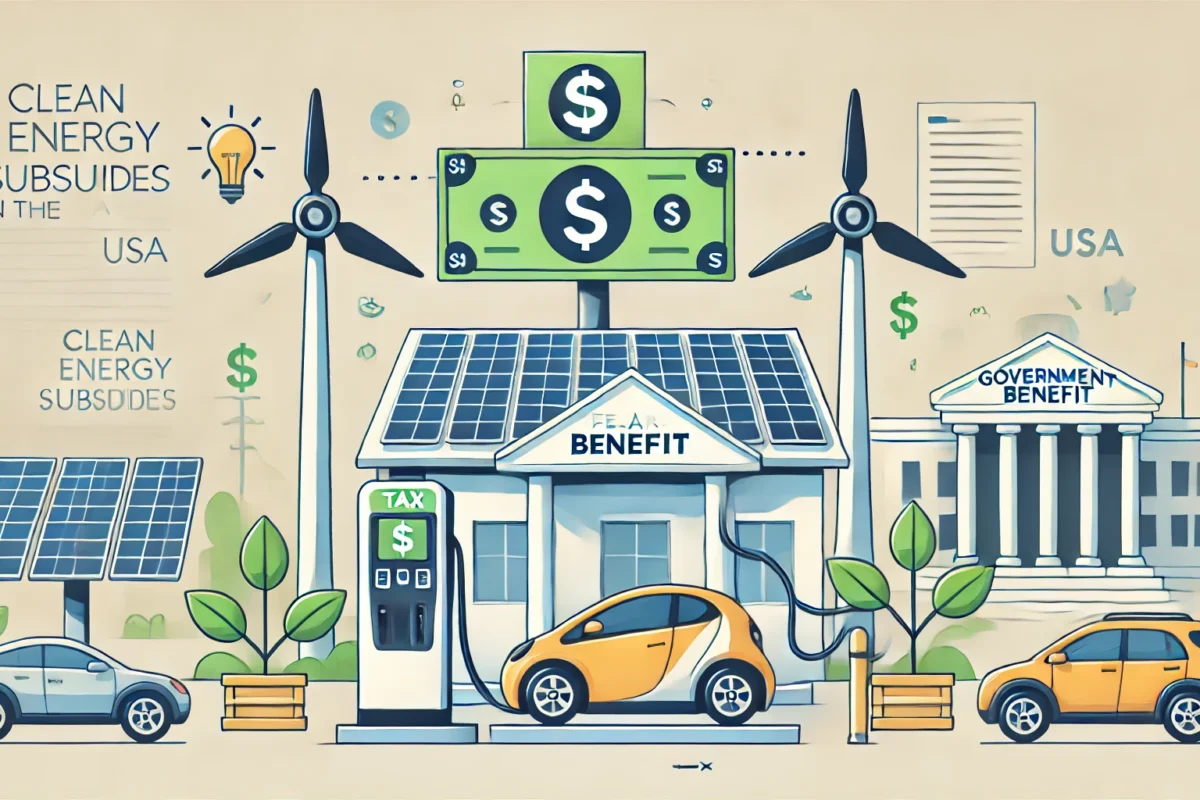Federal Energy Subsidies in USA: Clean Energy Tax Credits Explained
To encourage renewable energy, the U.S. government offers a variety of incentives and subsidies. One of the most important initiatives is the Inflation Reduction Act’s tax credits for renewable energy projects. These incentives help homeowners and companies reduce costs when switching to renewable energy sources.
Understanding Federal Energy Subsidies
Financial incentives such as tax credits, grants, and refunds are examples of federal energy subsidies that encourage the use of sustainable energy. These initiatives promote investment in renewable energy sources such as solar panels, wind turbines, and electric cars by both individuals and companies.

Inflation Reduction Act’s Clean Energy Tax Credits
The 2022 Inflation Reduction Act (IRA) expanded and added clean energy tax benefits. Significant benefits include:
- Residential Clean Energy Credit: A 30% tax credit is available to homeowners who install solar panels, wind turbines or battery storage.
- Commercial Investment Tax Credit (ITC): Businesses that invest in solar, wind or geothermal systems may be eligible for up to a 30% tax credit.
- Electric Vehicle Tax Credit: A tax credit of up to $7,500 is available to buyers of new and used electric vehicles.
- Energy-Efficient Home Improvement Credit: A credit of up to $1,200 may be awarded to homeowners who renovate their homes with energy-efficient features such as heat pumps or improved insulation each year.
Who can get tax credits for clean energy?
Different types of credits have different eligibility requirements. Generally:
- Homeowners and renters may be eligible by installing renewable energy systems.
- Companies can invest in infrastructure for renewable energy.
- The credits are available to consumers who purchase electric vehicles that comply with federal regulations.
How federal energy tax credits are claimed
- Check the IRS regulations for each type of credit to determine your eligibility.
- Buy a qualified electric vehicle, install solar panels, or improve your home’s energy efficiency.
- Maintain all records and Keep track of manufacturer certifications, installation logs, and receipts.
- When filing taxes, submit IRS Form 5695 to claim the residential energy credit. Form 3468 should be used by businesses.
In addition to tax credits, renewable energy incentives are available to both individuals and businesses. To optimise benefits, learn more about the US Government Renewable Energy Grants: How to Apply & Get Funding in 2025.
Additional Information and Official Resources
Visit the U.S. Department of Energy website for the latest information and official details about energy subsidies.
Businesses and individuals can save money and help build a more sustainable future by using these renewable energy tax credits. Plan your investment in renewable energy now!
